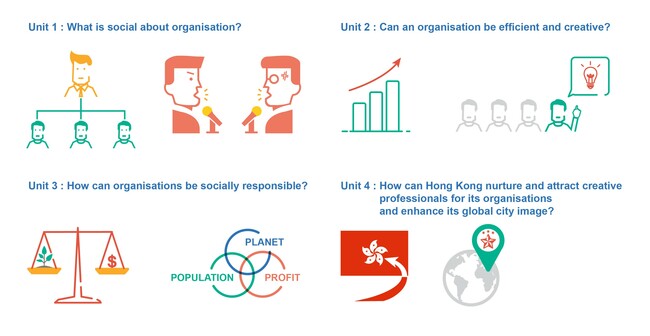GE Core module – Social Dynamics of Organisations
Module Information
Why study Social Dynamics of Organisations?
This module aims to provide students with a basic understanding of the structural characteristics and social dynamics of organisations. Because all students will eventually be working in an organisational setting, the module will expose them to basic ideas, concepts, and principles in the social sciences that allow the analysis and understanding of contemporary organisational issues and their relationship to professional work life.
The module is organised into four units punctuated by essential questions that encourage student exploration and discovery. A primary purpose of this GE module is to develop a student’s basic skills in self-directed learning, analysis, and communication.

Teaching and Learning Activities
The module is organised around a set of essential questions in social organisation that requires students to engage in social scientific thinking and inquiry as well as linking the social organisational issues to contemporary problems and professional challenges. The focus will be placed on integrative questions that draw on a range of disciplinary perspectives and build in-depth learning. A mixture of teaching and learning approaches and strategies will be adopted to facilitate student learning.
On completion of this module, students are expected to be able to:
- describe key issues and themes in the examination of social dynamics of organisations;
- extend essential questions in social dynamics of organisations and contemporary issues;
- critically analyze and propose solutions to the problems raised by essential questions in social dynamics of organisations;
- express ideas about the essential questions in social dynamics of organisations effectively using oral and written forms of communication; and work cooperatively with other students on common tasks and problems.
